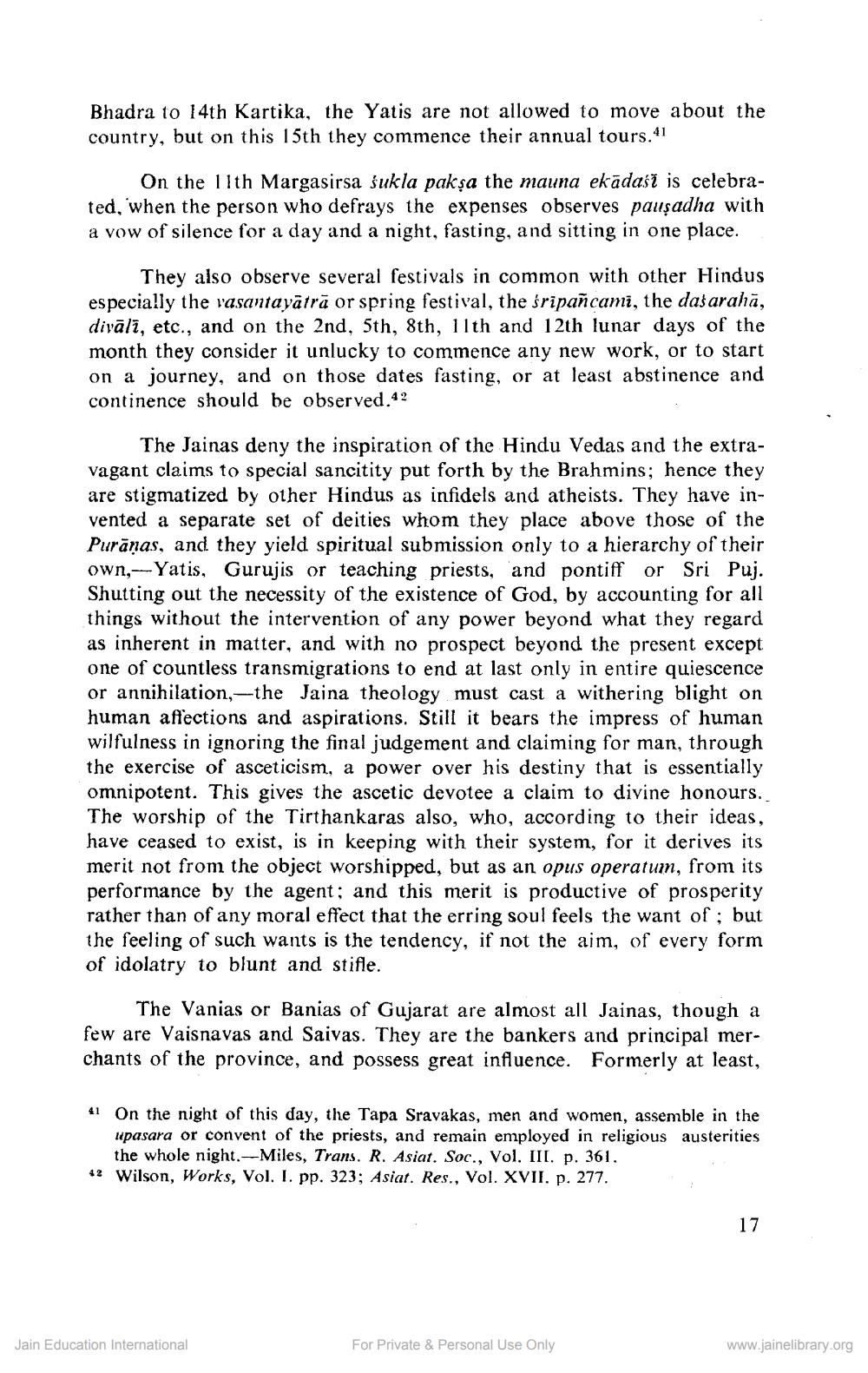________________
Bhadra to 14th Kartika, the Yatis are not allowed to move about the country, but on this 15th they commence their annual tours. 41
On the 11th Margasirsa śukla pakşa the mauna ekādaśī is celebrated, when the person who defrays the expenses observes pauşadha with a vow of silence for a day and a night, fasting, and sitting in one place.
They also observe several festivals in common with other Hindus especially the vasantayātrā or spring festival, the śripañcami, the dašarahā, divālī, etc., and on the 2nd, 5th, 8th, 11th and 12th lunar days of the month they consider it unlucky to commence any new work, or to start on a journey, and on those dates fasting, or at least abstinence and continence should be observed.42
The Jainas deny the inspiration of the Hindu Vedas and the extravagant claims to special sancitity put forth by the Brahmins; hence they are stigmatized by other Hindus as infidels and atheists. They have invented a separate set of deities whom they place above those of the Purāņas, and they yield spiritual submission only to a hierarchy of their own --Yatis, Gurujis or teaching priests, and pontiff or Sri Puj. Shutting out the necessity of the existence of God, by accounting for all things without the intervention of any power beyond what they regard as inherent in matter, and with no prospect beyond the present except one of countless transmigrations to end at last only in entire quiescence or annihilation,--the Jaina theology must cast a withering blight on human affections and aspirations. Still it bears the impress of human wilfulness in ignoring the final judgement and claiming for man, through the exercise of asceticism, a power over his destiny that is essentially omnipotent. This gives the ascetic devotee a claim to divine honours. The worship of the Tirthankaras also, who, according to their ideas, have ceased to exist, is in keeping with their system, for it derives its merit not from the object worshipped, but as an opus operatum, from its performance by the agent; and this merit is productive of prosperity rather than of any moral effect that the erring soul feels the want of; but the feeling of such wants is the tendency, if not the aim, of every form of idolatry to blunt and stifle.
The Vanias or Banias of Gujarat are almost all Jainas, though a few are Vaisnavas and Saivas. They are the bankers and principal merchants of the province, and possess great influence. Formerly at least,
41 On the night of this day, the Tapa Sravakas, men and women, assemble in the
upasara or convent of the priests, and remain employed in religious austerities the whole night.Miles, Trans. R. Asiat. Soc., Vol. III. p. 361. Wilson, Works, Vol. I. pp. 323; Asiat. Res., Vol. XVII. p. 277.
Jain Education International
For Private & Personal Use Only
www.jainelibrary.org




